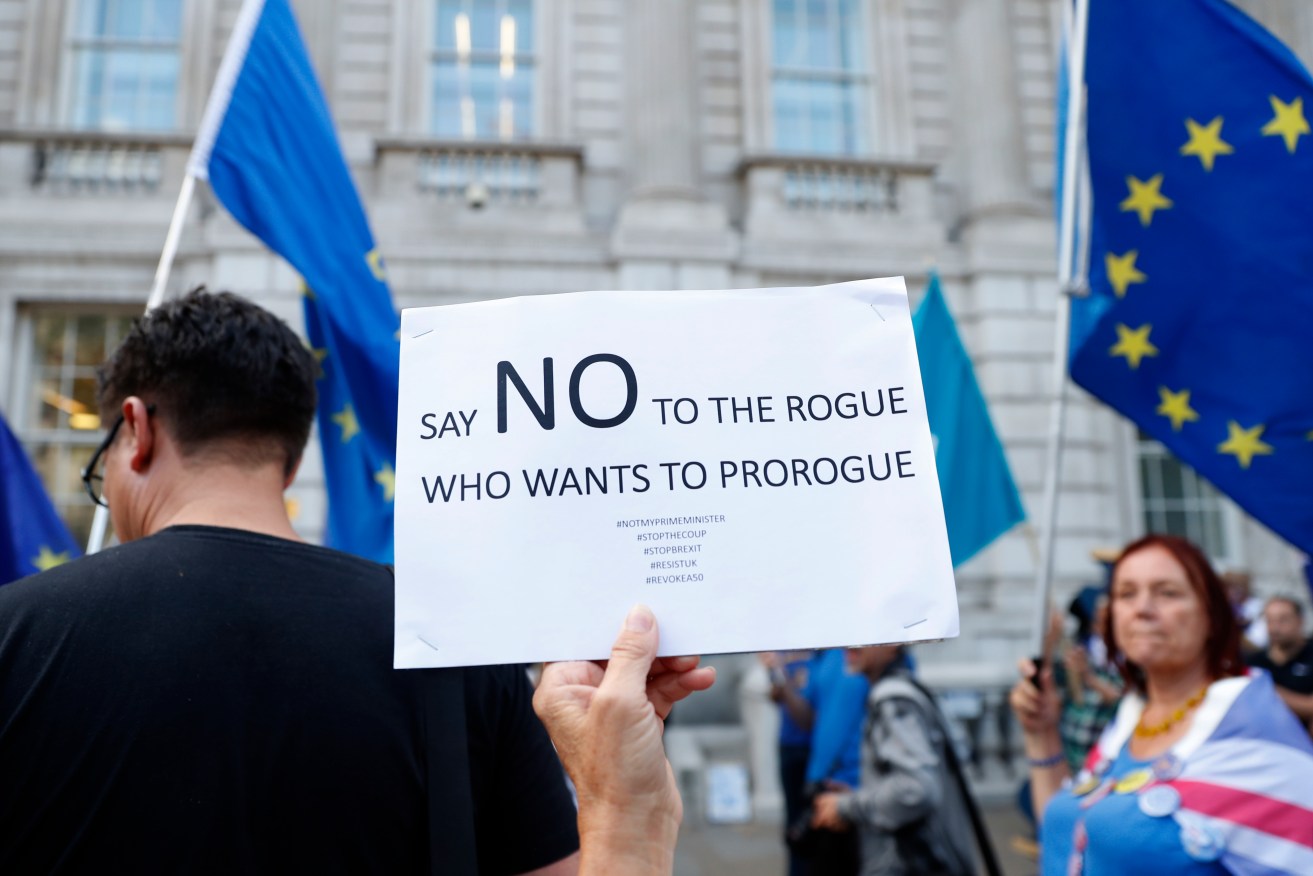UK Labour vows last-ditch effort to thwart no-deal Brexit
Britain’s opposition Labour Party says it will trigger an emergency debate in parliament next week to try to stop Prime Minister Boris Johnson taking Britain out of the EU without a withdrawal deal.

Photo: AP/Alastair Grant
More than three years after the country voted in a referendum to leave the bloc, the United Kingdom is heading towards its gravest constitutional crisis in decades and a showdown with the EU over Brexit, which is due to take place in just over two months’ time.
In his boldest step since becoming prime minister last month, Johnson enraged opponents of a no-deal Brexit on Wednesday by using a parliamentary mechanism to order the suspension of parliament for almost a month.
Johnson’s order to suspend parliament used the date of the Queen’s Speech – to be held on October 14 and preceded by a suspension of the House of Commons – to ensure parliament will not sit between mid-September and mid-October.
The speaker of the lower house of parliament, John Bercow, called this a constitutional outrage as it limited the time the parliament has to debate and shape the course of British history.
Labour Party leader Jeremy Corbyn said that as soon as parliament returns from its summer break on Tuesday, his party would initiate a process to legislate against a no-deal Brexit that he said would be damaging for the jobs and the economy.
“What we are going to do is try to politically stop him (Johnson) on Tuesday with a parliamentary process in order to legislate to prevent a no-deal Brexit and also to try and prevent him shutting down parliament in this utterly crucial period,” Corbyn told reporters on Thursday.
“This country is in danger of crashing out on the 31st of October with no deal,” he said.
“We have got to stop that and that is exactly what we will be doing next Tuesday.”
Johnson’s move to suspend parliament for longer than usual was cheered by US President Donald Trump but provoked strong criticism from some British lawmakers, including some of Johnson’s own ruling Conservative Party, and media.
EU ministers urged Britain to choose an orderly Brexit, with some openly expressing concern that Johnson’s move to suspend parliament increased the risk of a chaotic split.
Economists have widely predicted that a no-deal Brexit would deliver a damaging blow to Britain’s economy.
Three-month sterling implied volatility soared, indicating traders are bracing for more big price swings between now and the expected October 31 Brexit date.
JPMorgan raised the probability of a no-deal Brexit to 35 per cent from 25 per cent.
In the meantime, British negotiators will hold twice-weekly talks with European Union officials next month in an attempt to rework the Brexit agreement that Britain’s parliament has repeatedly rejected.
Johnson has demanded the removal of the existing deal’s ‘backstop’, which the EU wants to ensure an open border between Ireland and Northern Ireland.
“While I have been encouraged with my discussions with EU leaders over recent weeks that there is a willingness to talk about alternatives to the anti-democratic backstop, it is now time for both sides to step up the tempo,” Johnson said.
“The increase in meetings and discussions is necessary if we are to have a chance of agreeing a deal for when we leave on October 31st,” he added.
The existing backstop would require Northern Ireland – and possibly the whole United Kingdom – to continue to follow many EU rules if future trade talks break down, in order to avoid customs checks on the Ireland-Northern Ireland border.
Britain has said technological alternatives to border checks should be possible by the time the backstop might be needed, but has given no details, prompting scepticism from the EU.
“Discussions so far have shown that the two sides remain some distance apart on key issues but that both sides are willing to work hard to find a way through,” Britain’s government said.
Next month’s talks will take place in Brussels and will be led on the British side by lead negotiator David Frost.
Want to comment?
Send us an email, making it clear which story you’re commenting on and including your full name (required for publication) and phone number (only for verification purposes). Please put “Reader views” in the subject.
We’ll publish the best comments in a regular “Reader Views” post. Your comments can be brief, or we can accept up to 350 words, or thereabouts.
InDaily has changed the way we receive comments. Go here for an explanation.




